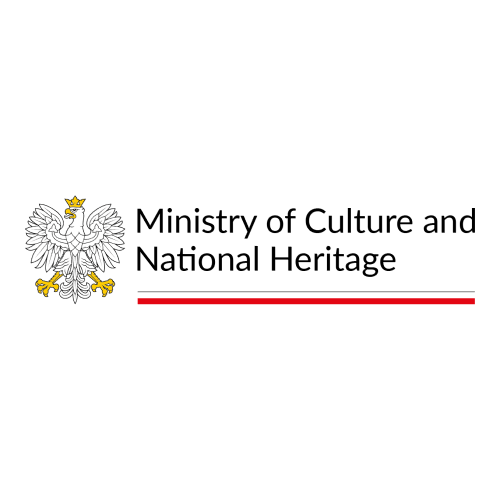Rigoletto
Giuseppe Verdi
Opera in three acts
Libretto: Francesco Maria after Victor Hugo's play Le roi s'amuse
World premiere: 11 March 1851, Gran Teatro La Fenice, Venice
Polish premiere: 8 November 1853, Teatr Wielki, Warsaw
Premiere of this production: 12 March 1997, Polish National Opera, Teatr Wielki, Warsaw
In the original Italian with Polish surtitles
The name Rigoletto is borrowed from a parody of Victor Hugo’s play, while the opera is based on an original prose piece (for a change) penned by the author of Les Misérables. The road to operatic stages was long and bumpy: it began in 1844, it ended seven years later. Censorship kept intently weeding out the 'indecency and vulgarity' of the libretto, disregarding the logical and dramatic consequences of these interventions. If we compare the starting point with the arrival point, it would turn out that there is barely anything left of the first version – even the names were changed in order to hide the association with Hugo, whom the authorities did not regard with kindness. It had certain, shall we say, rather unobvious results: the title character has no real aria to sing, the prima donna has but one, and the acts break off, say, spontaneously. Verdi’s genius, however, trumped the authorities in the end. The opera immediately won the hearts of the audiences – and nothing has changed since the world premiere in that regard. The Warsaw staging begins with a riot of colours, textures, shapes, flashes, gilding and jewels – I had the impression that I was seeing the tinted Orthodox churches of Kremlin of absolutely incomprehensible beauty and physics, suddenly descended in human form. Well it does not matter, what exactly descended, what matters is that the singing is done in Italian. And it shakes you.
Cast
Credits
Synopsis
Sponsors
-
Partnerzy Akademii Operowej
-
Partnerzy Teatru Wielkiego - Opery Narodowej
-
Partner technologiczny
-
Patroni medialni
-
Partners of the Opera Academy
-
Partners of Teatr Wielki – Polish National Opera
-
Technological partner
-
Media patrons





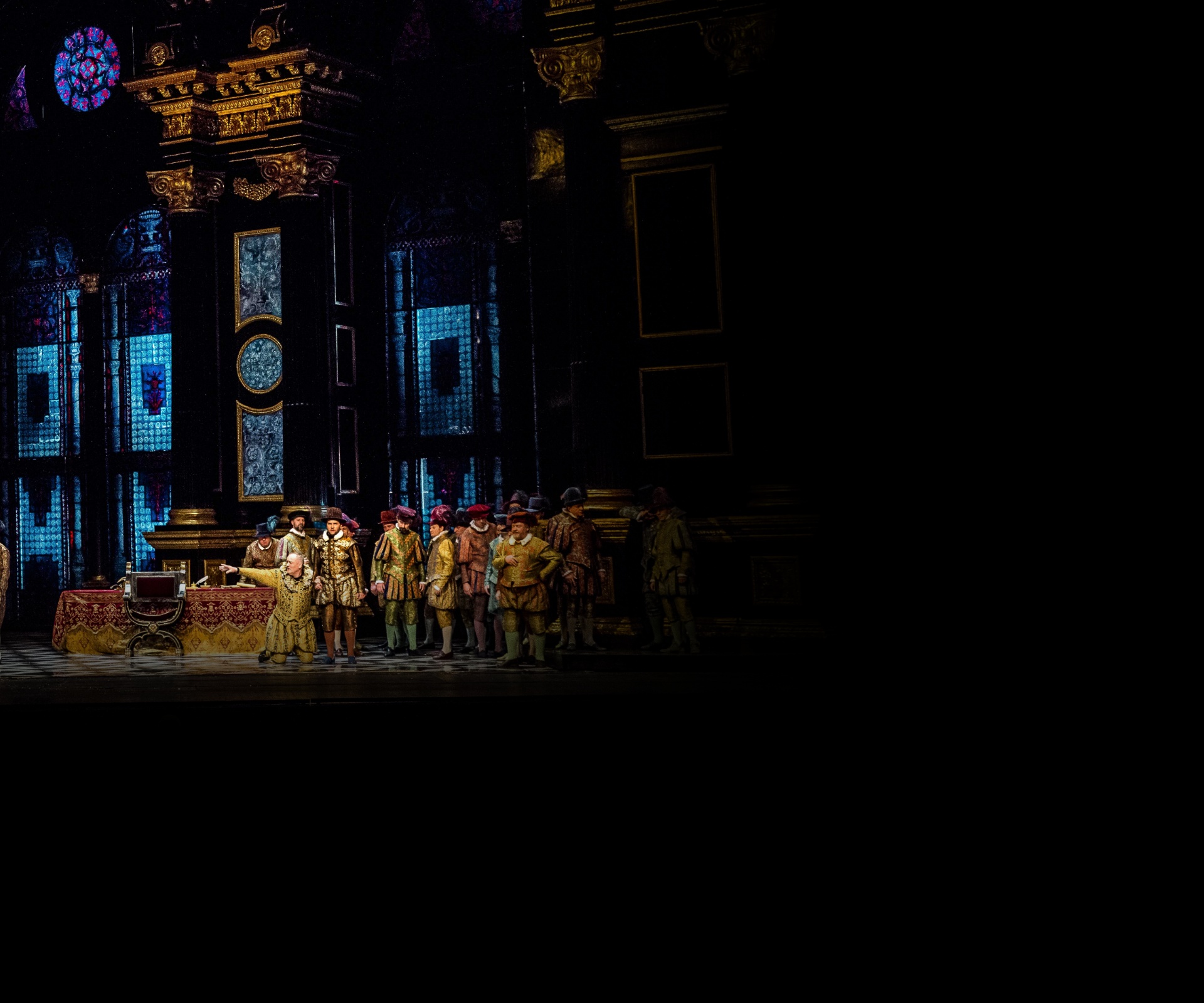
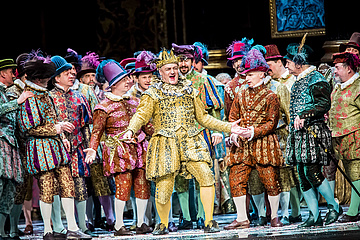
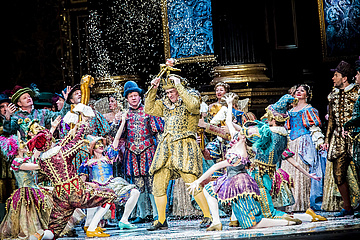
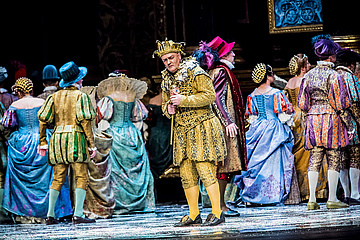
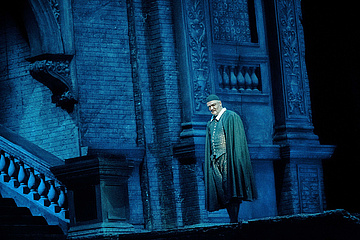
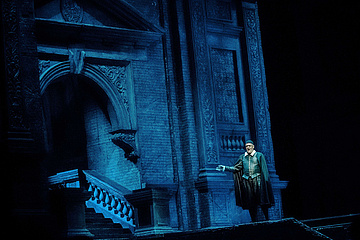
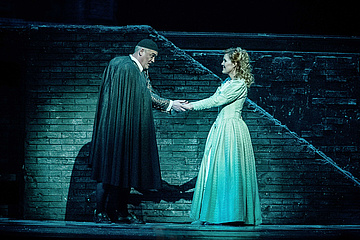
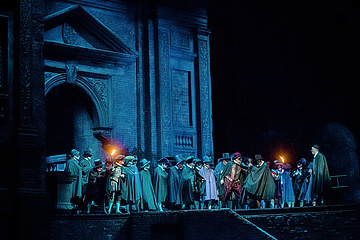
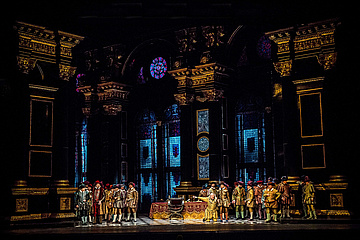
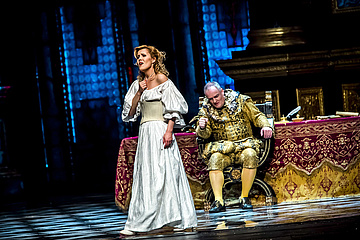
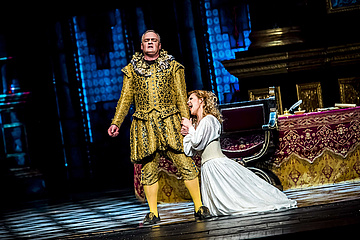
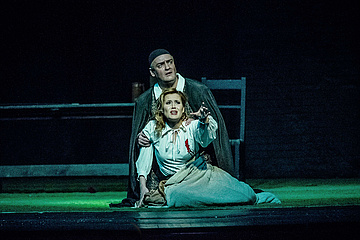
 Mykhailo Malafii
Mykhailo Malafii  Simone Piazzola
Simone Piazzola  Anna Simińska
Anna Simińska  Monika Ledzion-Porczyńska
Monika Ledzion-Porczyńska  Iurie Maimescu
Iurie Maimescu ![[Translate to English:]](/fileadmin/_processed_/1/9/csm_slawomir_kowalewski_-_kwadrat_3ef90e795b.jpg) Sławomir Kowalewski
Sławomir Kowalewski  Mateusz Zajdel
Mateusz Zajdel  Paweł Trojak
Paweł Trojak 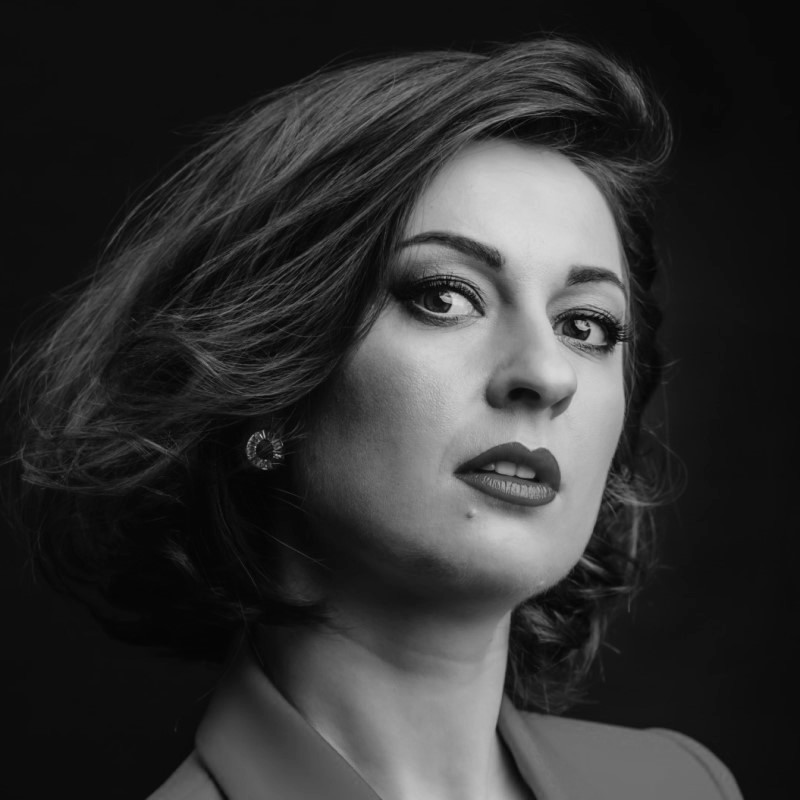 Magdalena Stefaniak
Magdalena Stefaniak  Elżbieta Wróblewska
Elżbieta Wróblewska  Wojtek Gierlach
Wojtek Gierlach  Katarzyna Belkius
Katarzyna Belkius  Ragaa Eldin
Ragaa Eldin ![[Translate to English:] Stepan Drobit](/fileadmin/_processed_/c/6/csm_Stepan_Drobit_fot._Anastasiia_Kvasnovska_www_mini_355c3d61ab.jpg) Stepan Drobit
Stepan Drobit  Sabrina Sanza
Sabrina Sanza ![[Translate to English:]](/fileadmin/_processed_/8/d/csm_Gilberto_Deflo_kwadrat_6563b0c263.jpg) Gilberto Deflo
Gilberto Deflo ![[Translate to English:]](/fileadmin/_processed_/7/b/csm_Ezio_Frigerio_9ff667e8ae.jpg) Ezio Frigerio
Ezio Frigerio  Franca Squarciapino
Franca Squarciapino  Zofia Rudnicka
Zofia Rudnicka  Stanisław Zięba
Stanisław Zięba  Mirosław Janowski
Mirosław Janowski ![[Translate to English:]](/fileadmin/media/img/ludzie/dyrygenci/patrick_fournilier_fot_arch_artysty_-_kwadrat.jpg) Patrick Fournillier
Patrick Fournillier 




